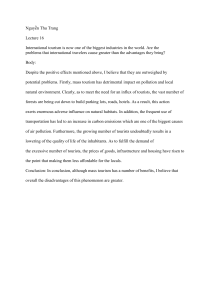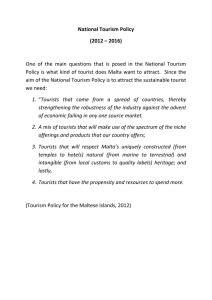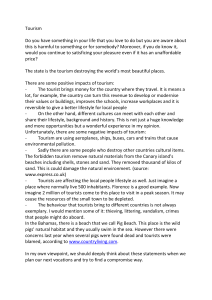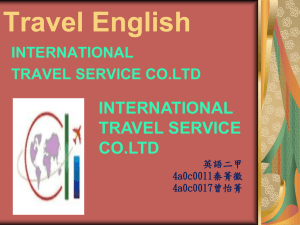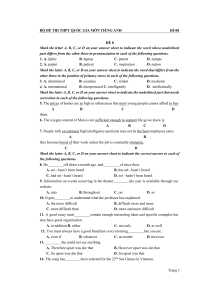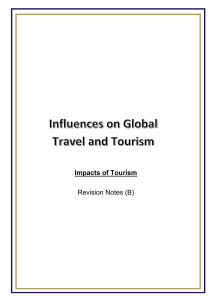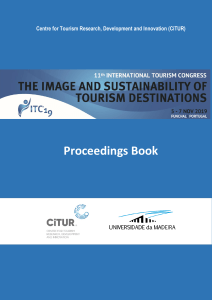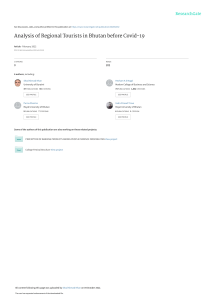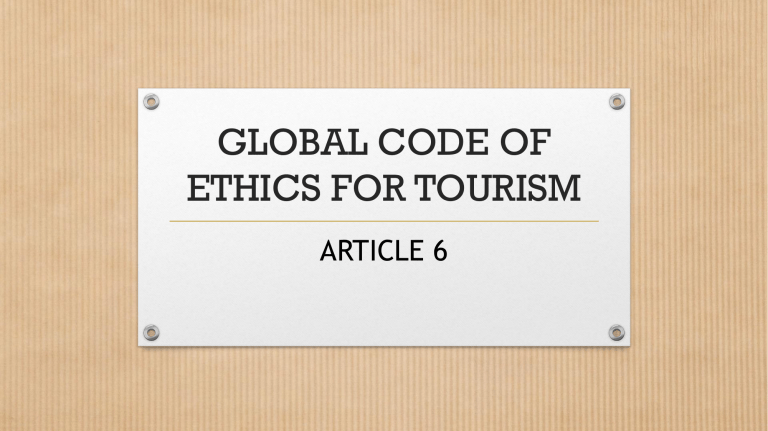
GLOBAL CODE OF ETHICS FOR TOURISM ARTICLE 6 1. Tourism professionals have an obligation to provide tourists with objective and honest information on their places of destination and on the conditions of travel, hospitality and stays; they should ensure that the contractual clauses proposed to their customers are readily understandable as to the nature, price and quality of the services they commit themselves to providing and the financial compensation payable by them in the event of a unilateral breach of contract on their part; 2. Tourism professionals, insofar as it depends on them, should show concern, in co-operation with the public authorities, for the security and safety, accident prevention, health protection and food safety of those who seek their services; likewise, they should ensure the existence of suitable systems of insurance and assistance; they should accept the reporting obligations prescribed by national regulations and pay fair compensation in the event of failure to observe their contractual obligations; FOOD SAFETY ROOM SECURITY ACCIDENT PREVENTION 3. Tourism professionals, so far as this depends on them, should contribute to the cultural and spiritual fulfilment of tourists and allow them, during their travels, to practice their religions; 4. The public authorities of the generating States and the host countries, in cooperation with the professionals concerned and their associations, should ensure that the necessary mechanisms are in place for the repatriation of tourists in the event of the bankruptcy of the enterprise that organized their travel; 5. Governments have the right – and the duty - especially in a crisis, to inform their nationals of the difficult circumstances, or even the dangers they may encounter during their travels abroad; it is their responsibility however to issue such information without prejudicing in an unjustified or exaggerated manner the tourism industry of the host countries and the interests of their own operators; the contents of travel advisories should therefore be discussed beforehand with the authorities of the host countries and the professionals concerned; recommendations formulated should be strictly proportionate to the gravity of the situations encountered and confined to the geographical areas where the insecurity has arisen; such advisories should be qualified or cancelled as soon as a return to normality permits; 6. The press, and particularly the specialized travel press and the other media, including modern means of electronic communication, should issue honest and balanced information on events and situations that could influence the flow of tourists; they should also provide accurate and reliable information to the consumers of tourism services; the new communication and electronic commerce technologies should also be developed and used for this purpose; as is the case for the media, they should not in any way promote sex tourism THANK YOU FOR LISTENING!! Presented By: Rica May C. Subillaga BSTM - 2
